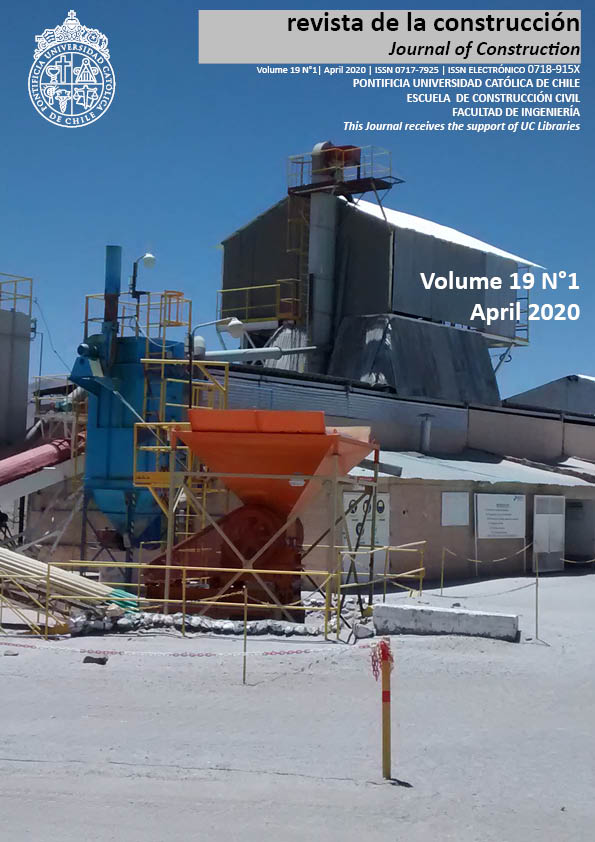Influence of elevated temperatures on compressive and flexural strengths of Cocos nucifera Linn. fiber strengthened lightweight foamcrete
DOI:
https://doi.org/10.7764/RDLC.19.1.112-126Keywords:
Foamed concrete, elevated temperatures, compressive strength, flexural strength, coconut fiber, coirAbstract
The call for lightweight foamcrete technology is impelled by the amplified rules and guidelines with the aim of minimizing greenhouse gas emission and reducing carbon footprint. The use of natural fibers in foamcrete is considered as a useful option in making concrete a sustainable material. Therefore, the aim of the present study was to determine the compressive and flexural strengths of foamcrete reinforced with Cocos nucifera Linn. fiber (CNF) exposed to elevated temperatures. CNF refers to agricultural waste or by-products obtained from the distribution of coconut oil and accumulated in a large amount in Malaysia. This study aimed to identify the response of CNF towards six different contents (0.1%, 0.2%, 0.3%, 0.4%, 0.5%, and 0.6%) by mix volume. Three different densities of 650, 1050 and 1450 kg/m3 were tested in this study. The proportion of foamcrete constituted cement, sand, and water which were represented by the ratio of 1:1.5:0.45. Results showed that, CNF-strengthened foamcrete offered progressively ductile structure contrasted with plain foamcrete at elevated temperatures. The incorporation of CNF enhanced the mechanical properties at each predetermined temperature for all densities investigated. This demonstrates that CNF has strong bonding and good quality of chemical properties that are unique to it. The optimum volume fractions of CNF that gave the best improvement in mechanical and high temperature properties were 0.3% for 650 kg/m3, 0.4% for 1050 kg/m3 and 0.5% for 1450 kg/m3.
Downloads
Published
How to Cite
Issue
Section
License

This work is licensed under a Creative Commons Attribution-NonCommercial-NoDerivatives 4.0 International License.





